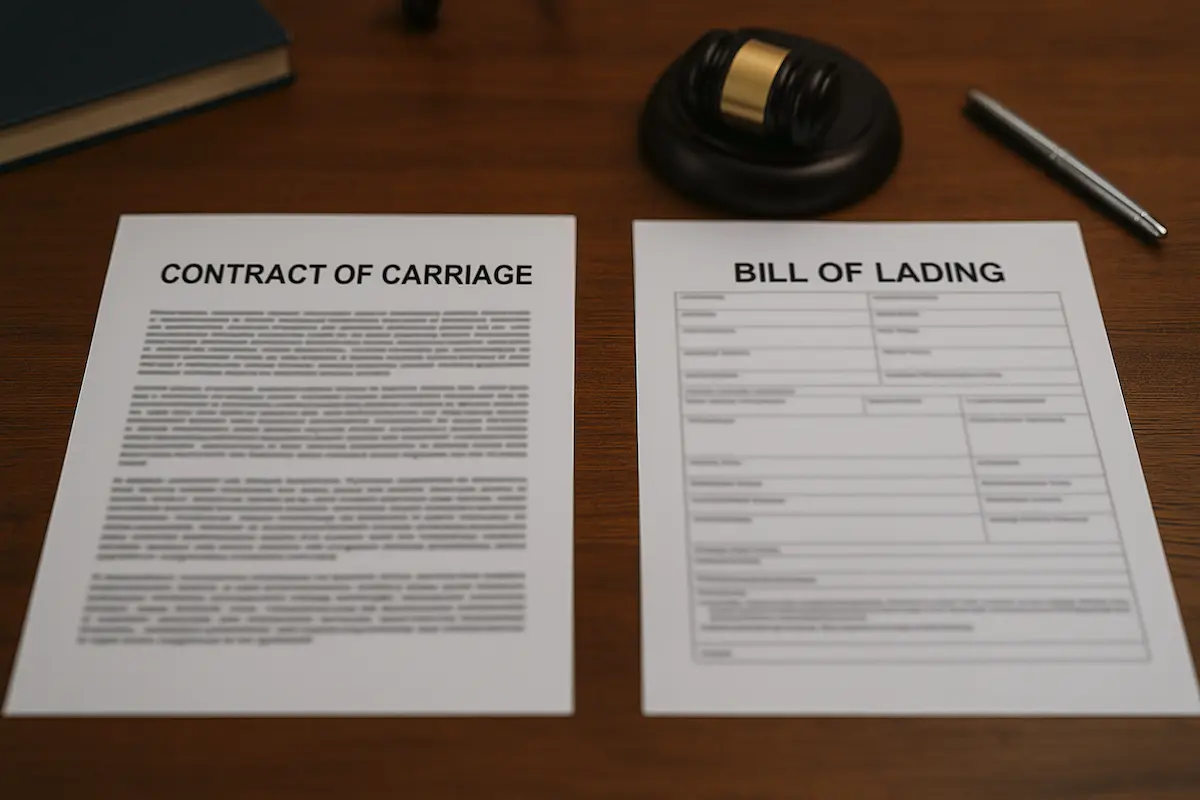
The following is my previous post on the reader’s enlightenment questions about the bills, this is my second question and my answer. The colored text of the query is from my reader ..
Q2: A loading bill is not necessarily proof of a carriage contract between the ship owner and the carrier. Many ships have been charted and B/L is issued by the ship operator. (With careful kindness I am not sure I understand.)
A2: This is a valid and often misunderstanding statement, especially when we examine the legal status of a bill (B/L) in various sequences of transportation.
Shipment
In regular commercial transport, where shipping cargo with a shipping company (such as marsk, hapag-llod, etc.), the shipping contract arrives at the time of booking, long before the bill is loaded.
Imagine this common scenario:
– Advertise here –
A reservation or freight representative with a transit line, by phone, email or via online booking system calls by request
“Please book 2 x 40 containers from Durban to Singapore in Xyz Express, Voyage 102, sailing on July 30, at a rate of $ 1.350/$ 40.“
The transit line responds (by return email, confirmation of PDF reservation or portal notification):
“Reservation was confirmed. Space is dedicated. Subject to our standard terms and conditions under our billing.“
And the boom, just like that, a carriage contract has been entered, even if no physical document (such as B/L) has been issued yet, and a binding legal contract is based on suggestion, acceptance, consideration and intention.
Therefore, in this regard, the loading bill is not the contract itself, this is the evidence of the pre -existing contract after receiving and shipping the goods.
Transportation of the Charter Party (eg, bulk or tanker)
When the charter of a ship is involved (such as travel or time charter), the carriage contract is run by the charter agreement between the ship owner and the Charter.
- B/L issued under one party of the prism is usually only one cargo cargo and may also act as a title document depending on how it is issued and the qualifications.
- If the charter decides that while the cargo is transit, it can sell a high seas, B/L can be transferred to the buyer as a title document, but the fundamental contract is still the charter party, not a bill.
This principle was fully established in the case of Rodocanachi V Milburn (1886), where the court held:
“As the parties to the charter between the ship and the charter, only forms the contract. The loading bill is only considered as a receipt of goods.”
End
So, for Recap:
– advertising –
- In the commercial trade that the charter does not enjoy, a bill is generally a bill The evidence of a contract Arrived earlier ..
- In the Charter Party trade, Loading bill may not represent a carriage contract Between the owner and the Charter, because this role is the agreement of the charter.
- In both cases, the role of B/L depends on the relationship between the parties and the legal structure of transportation.
Understanding this distinction is crucial, especially in cases where assumptions on the legal power of a B/L can lead to disputes if the nature of the carriage is misunderstanding.
Reward insights
If you surprise (like me) why an item of 1886 It is still mentioned, because legal systems, especially joint law systems such as Britain and many maritime jurisdictions, have been built on the previous basis.
Unless a principle is ignored, valid and Rodocanachi v Milburn It has not been overturned.
While Rodocanachi v Milburn Continues to be a fundamental case on the relationship between charter and bills, its principle by several modern decisions such as confirmed and corrected Dunelmia Vat StarsShow how courts continue to do the doctrine with contemporary transportation.